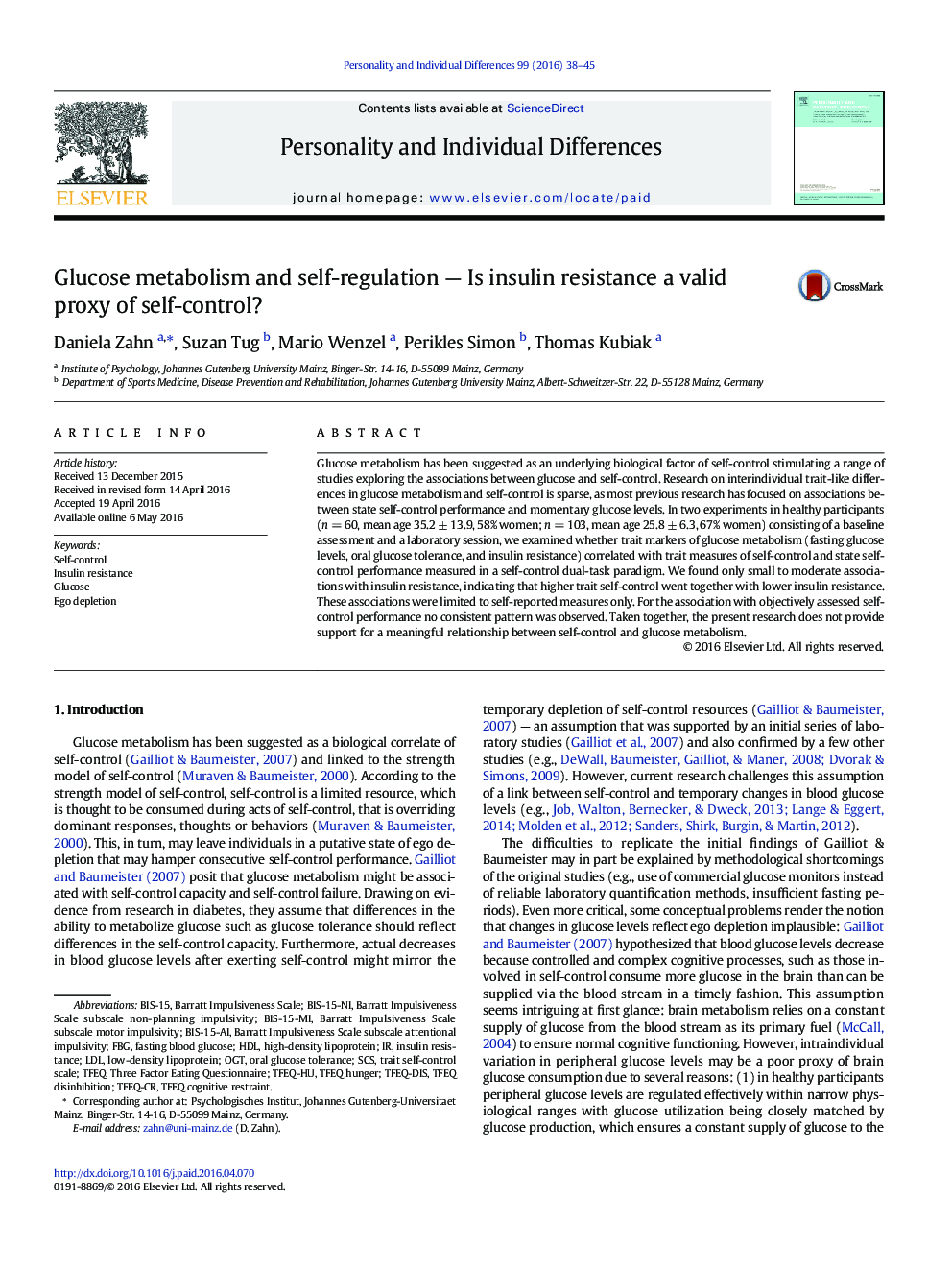| Article ID | Journal | Published Year | Pages | File Type |
|---|---|---|---|---|
| 889696 | Personality and Individual Differences | 2016 | 8 Pages |
•Self-control was not related to oral glucose tolerance.•Higher self-reported self-control was associated with lower insulin resistance.•Self-control performance showed inconsistent associations with insulin resistance.
Glucose metabolism has been suggested as an underlying biological factor of self-control stimulating a range of studies exploring the associations between glucose and self-control. Research on interindividual trait-like differences in glucose metabolism and self-control is sparse, as most previous research has focused on associations between state self-control performance and momentary glucose levels. In two experiments in healthy participants (n = 60, mean age 35.2 ± 13.9, 58% women; n = 103, mean age 25.8 ± 6.3, 67% women) consisting of a baseline assessment and a laboratory session, we examined whether trait markers of glucose metabolism (fasting glucose levels, oral glucose tolerance, and insulin resistance) correlated with trait measures of self-control and state self-control performance measured in a self-control dual-task paradigm. We found only small to moderate associations with insulin resistance, indicating that higher trait self-control went together with lower insulin resistance. These associations were limited to self-reported measures only. For the association with objectively assessed self-control performance no consistent pattern was observed. Taken together, the present research does not provide support for a meaningful relationship between self-control and glucose metabolism.
